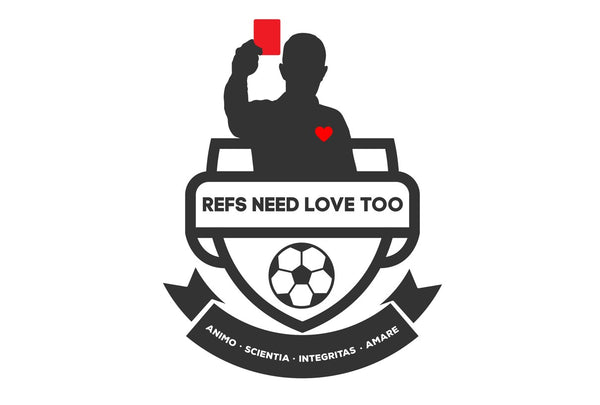
Anger Managament
Share
Understanding and managing intense emotions—both theirs and yours—is the ultimate form of Game Management. Here are some lessons from Dr. Ryan Martin, 'The Anger Professor,' on the science behind sideline rage and how referees can stay grounded.
1. Why They Get Mad
Anger isn't a "bad" emotion; it’s an alert system for perceived injustice or goal-blocking. When a coach, spectator or player is yelling, they believe you have unfairly blocked them from achieving their goal (winning).
High-intensity soccer naturally elevates heart rates. This physiological arousal makes players, spectators and coaches more likely to misrepresent their excitement and stress as anger, leading to explosive reactions, especially late in the game.

2. The Escalation Trap: Why We Must Not React
Getting angry back at a player, coach or spectator only inflames tensions and escalates the situation. When someone is in the "red mist," they are operating in an emotional, non-listening state. If you engage in a toe-to-toe argument or yell back, you validate their anger and lose your credibility and authority. Instead of fighting fire with fire, remember:
-
They Need Time: If a player or coach is enraged, take a moment. Have a brief, calming conversation with them or the captain, but only after they have had a chance to breathe and their heart rate drops.
-
Avoid dismissive words or phrases: Try to avoid "Calm down" or saying "It’s only a game." Simply state the action you will take next. "Coach, you’re engaged in public and persistent dissent. If you don’t stop, there will be consequences."

3. Finding the Referee’s Pause Button
Your primary defense mechanism is the "Pause Button." This is the mental strategy you use before reacting to provocation.
-
Breathe: Use a deep breath to lower your own physiological arousal. This helps you move from an impulsive reaction to a rational response.
-
Be approachable and willing to communicate. Explaining a complex decision (e.g., "From my angle, it was a shoulder-to-back challenge, not shoulder-to-shoulder") builds rapport and reduces the feeling of "injustice."
-
The anger is directed at the uniform and the decision, not your character. You are passionate about refereeing, so criticism feels personal, but recognize it as a single comment from someone in the heat of the moment.

Final Option: Dismissal
If the coach fails to manage their parent(s), or the language is offensive/abusive:
-
The Card to the Coach: If the Head Coach refuses to act, or the behavior continues after you've asked, you can caution or dismiss the Head Coach for failing to control their team/spectators (Irresponsible Behavior).
The Direct Dismissal: If the language from the spectator is Offensive, Insulting, or Abusive (OIAL), you must stop the game and demand the coach have the person leave the facility immediately. If they refuse, you terminate the match.
Stay proactive, stay professional, and remember you have the whistle and the Law on your side.
